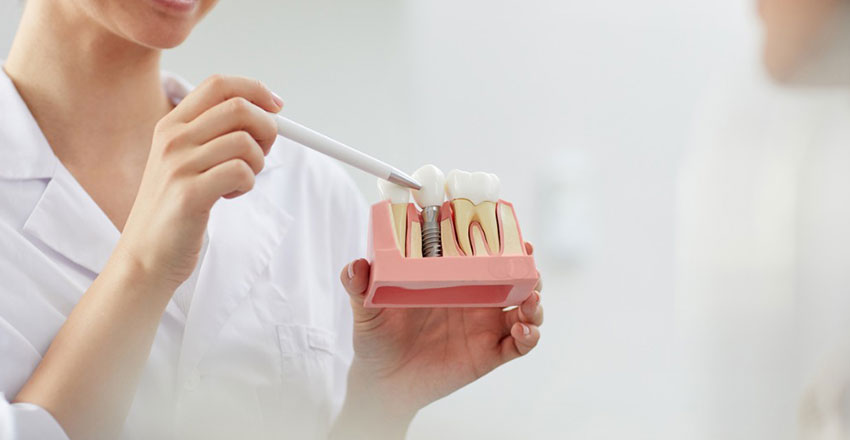Blog Introduction: At its core, restorative dentistry brings your smile back to life. Maybe you’ve suffered from tooth decay or gum disease, or perhaps you’ve had an accident that damaged your teeth. Whatever the case may be, restorative dentistry can help. In this blog post, we’ll explore some of the most common procedures associated with restorative dentistry and help you determine if this type of dental care is right for you.
Fillings:

A filling is a standard procedure used to treat tooth decay. The dentist will remove the decayed portion of the tooth and then fill the resulting cavity with a material such as an amalgam (a silver-colored alloy), gold, composite resin (to match the color of your teeth), or ceramic. Fillings are also used to repair cracked or broken teeth and to replace old amalgam fillings that have become corroded or fractured. The type of filling for your dentist will depend on the tooth’s location, the damage’s extent, your insurance coverage, and your preference.
The most common type of filling is an amalgam, which is made of mercury, silver, tin, and copper. Amalgams are solid and durable, and they can last for many years. However, they are also visible when you smile or open your mouth, so if esthetics are essential, you may want to consider another type of filling.
Composite resin fillings are made of a plastic and glass mixture that can match your teeth’ color. They are not as visible as amalgams but may not be as strong or durable. If the tooth is under a lot of stress, such as from biting or grinding, your dentist may recommend another type of filling.
Gold fillings are solid and durable and can last many years. However, they are also visible when you smile or open your mouth, so if esthetics are essential, you may want to consider another type of filling.
Ceramic fillings are made of a plastic and glass mixture that can match your teeth’ color. They are not as visible as amalgams but may not be as strong or durable. If the tooth is under a lot of stress, such as from biting or grinding, your dentist may recommend another type of filling.
Crowns:
A crown is a “cap” that covers a damaged tooth. Crowns are usually made from porcelain or ceramic and are designed to match the color of your natural teeth. In some cases, crowns may also be made from metal. Crowns restore cracked or broken teeth, protect weak teeth from further damage, and cover dental implants.
Crowns are usually placed on teeth damaged by decay, injury, or wear and tear. In some cases, crowns may also cover teeth treated with a root canal procedure. Crowns may also be placed on dental implants to provide a natural-looking tooth replacement option.
Bridges:
A bridge is a fixed appliance that replaces one or more missing teeth by literally bridging the gap between two adjacent teeth. Bridges are usually made from porcelain or ceramic and are designed to match the color of your natural teeth. In some cases, bridges may also be made from metal.
Bridges are usually supported by dental implants or by your natural teeth. If you opt for dental implants to support your bridge, the implants will be placed in your jawbone and fuse with the bone over time. Once the fusion is complete, the implants will be used to support the bridge. If you choose to have your bridge supported by your natural teeth, the adjacent teeth will be prepared by removing a portion of the enamel. This is done to make room for the bridge.
Bridges are an excellent way to restore your smile and your ability to chew and speak properly. They can also help to prevent your remaining teeth from shifting out of place.
Dentures:
Dentures are removable appliances that can be used to replace one or more missing teeth. Complete dentures are used when the patient’s natural teeth have been removed, while partial dentures are used when some natural teeth remain. Dentures are usually made from acrylic and porcelain and are designed to match the color of your natural teeth.
Dentures are a great way to restore the function and appearance of your smile, and they can be an affordable option for replacing missing teeth. However, dentures require some adjustments and maintenance to keep them functioning correctly. Here are some tips for caring for your dentures:
-Clean your dentures daily with a soft-bristled toothbrush and mild soap. Avoid using abrasive cleaners, as they can damage dentures.
-Rinse your dentures after eating to remove any food particles.
-Soak your dentures in a mild cleaning solution overnight to keep them clean and moist.
-See your dentist regularly for checkups and to have your dentures adjusted as needed.
With proper care, dentures can last for many years. However, they may eventually need to be replaced due to wear and tear. If you have any concerns about your dentures, talk to your dentist.
Implants:

Dental implants are artificial roots placed into the jawbone to support one or more missing teeth. Once in place, artificial teeth (crowns) are attached to the implants. Implants are an option for patients who do not want to wear removable appliances such as dentures or who have difficulty wearing traditional dental bridges.
Benefits of dental implants include:
Improved appearance. Dental implants look and feel like your own teeth. And because they are designed to fuse with bone, they become permanent.
Improved speech. With poor-fitting dentures, the teeth can slip within the mouth, causing you to mumble or slur your words. Dental implants allow you to speak without the worry that teeth might slip.
Improved comfort. Because they become part of you, implants eliminate the discomfort of removable dentures.
Easier eating. Slipping dentures can make chewing difficult. Dental implants function like teeth, allowing you to eat your favorite foods confidently and without pain.
Improved self-esteem. Dental implants can give you back your smile and help you feel better about yourself.
They have improved oral health. Unlike bridges, dental implants do not rely on neighboring teeth for support. This means more teeth can be spared, improving long-term oral health. Individual implants also allow easier access between teeth, improving oral hygiene.
Conclusion:
If you’re considering restorative dentistry, you must consult your dentist to see if this care is proper for you. Your dentist will be able to explain the various procedures associated with restorative dentistry and help you choose the best course of treatment for your needs.
Austin Dental Works is a locally owned and operated dental practice providing quality dental care to the Austin, TX, community for years. We offer a full range of dental services, from preventive care to restorative and cosmetic procedures. Contact us today to schedule an appointment.




